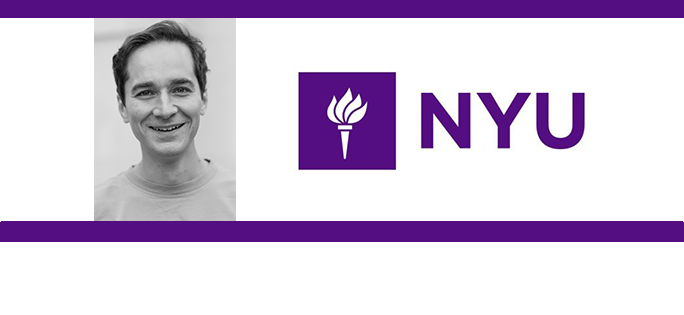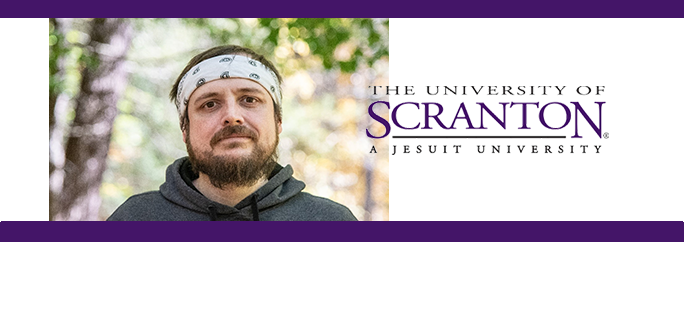Tag: Biology
-

Sara Lipshutz, Duke University – Multiple Evolutionary Routes to Building an Angry Bird
Angry birds aren’t just a videogame; they have a biological reason to be angry in real life too. Sara Lipshutz, assistant professor of biology at Duke University, explores why. Sara Lipshutz is an Assistant Professor in the Biology Department at Duke University. Her lab’s research focuses on the evolution of behavior across weird and wonderfully…
-

Andrew Davinack, Wheaton College (MA) – Practical Approach to Protecting Shellfish
Early detection is key in preventing parasites invading shellfish. Andrew Davinack, assistant professor of biology at Wheaton College in Massachusetts, takes a practical approach to doing so. I am an aquatic biologist with a strong focus on invasive invertebrates and the parasites which infect them. In particular, I am interested in understanding how human activities…
-

Jasmine Loveland, University of Vienna – A Super Enzyme in Overdrive: How Ruffs Lower Testosterone
What can birds teach us about testosterone? Jasmine Loveland, Lise Meitner postdoctoral fellow at the University of Vienna, examines this. Dr. Jasmine Loveland is a postdoctoral researcher at the University of Vienna and a guest scientist at the Max Planck Institute for Biological Intelligence. Her main interests are in molecular evolution, comparative neuroanatomy and the…
-

Nikolay Kukushkin, New York University – Kidney Cells Learn Like College Students
Memories are a big part of celebrating the holidays, but is more than your brain involved in this process? Nikolay Kukushkin, clinical associate professor of life science at New York University, looks through the body to find out more. Nikolay Kukushkin is Clinical Associate Professor at NYU. He holds a D. Phil. in Biochemistry from…
-

Vincent Farallo, University of Scranton – How Does Becoming Poisonous Impact A Frog’s Physiology
Certain animals will feel climate change earlier than others. Vincent Farallo, assistant professor at the University of Scranton, looks into one of these species. Vincent Farallo Ph.D. is from Buffalo, NY where he grew up developing an interest in reptiles and amphibians. He received his B.Sc. from John Carroll University in 2006, followed by a…
-

Tracy Hookway, Binghamton University – Cell Research Could Help Us Better Understand How Our Hearts Beat
When it comes to the heart, we have much research left to do. Tracy Hookway, assistant professor in the biomedical engineering department at Binghamton University, outlines some remaining questions. The focus of our lab is to develop predictive engineered in vitro models of human cardiovascular tissues to interrogate the mechanisms that drive morphogenic developmental processes.…
-

Sophia Tintori, New York University – What Chornobyl’s Worms Teach Us About DNA Damage
What can worms teach us about carcinogen exposure or chemotherapy? Sophia Tintori, postdoctoral associate in the biology department at New York University, heads to Chornobyl to find out. Sophia Tintori is a postdoctoral associate in the Biology Department at New York University. She was trained in developmental biology, cell biology, and genetics at Brown University…
-

Lindsey Swierk, Binghamton University – Lizard Adaptations Through the Lens of Organismal Ecology
On Binghamton University Week: How do reptiles of different sexes solve the same problem in different ways? Lindsey Swierk, assistant research professor of biological sciences at the Harpur College of Arts and Sciences, takes a closer look at anoles. Swierk studies the behavior and ecology of species in a changing world. Her work primarily focuses…
-

Adam Session, Binghamton University – Deciphering Polypoid Genome Ancestry
On Binghamton University Week: Untangling the evolution of hybrid plants can be tricky. Adam Session, assistant professor of biological sciences, looks into some. Dr. Session is currently an assistant professor at the Binghamton University Harpur School of Arts and Sciences His research focuses on genome evolution with a focus on polyploidy and transposable elements. Deciphering…
-

Daniel Beverly, Indiana University Bloomington – How Several Minutes of Darkness Can Impact the Environment
On Indiana University’s Total Solar Eclipse Week: How will the natural world react to the total solar eclipse? Daniel Beverly, postdoctoral researcher at the O’Neill School of Public Environmental Affairs, examines this. Daniel Beverly is a Postdoctoral Research fellow at the O’Neill School of Public and Environmental Affairs at Indiana University Bloomington. He received his…
